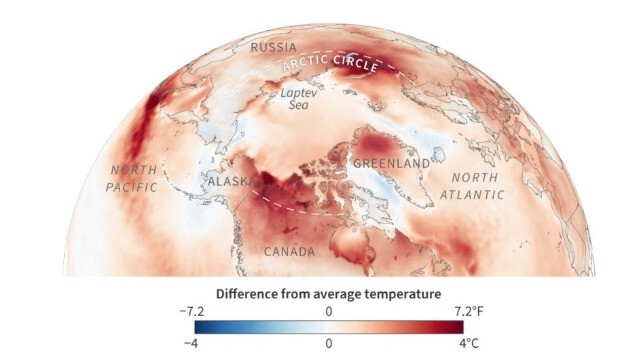NOAA: 2023 Had the Hottest Summer on Record in the Arctic

NOAA has released its annual Arctic Report Card in time for the conclusion of the COP28 climate summit, and it confirms what delegates likely suspected: human-caused warming is happening fastest in the Arctic, and this summer was the region's hottest ever recorded.
“The overriding message from this year’s report card is that the time for action is now,” said Rick Spinrad, NOAA administrator. “We as a nation and global community must dramatically reduce greenhouse gas emissions that are driving these changes.”
Average surface air temperatures in the Arctic hit a new peak of 43 degrees F over the summer, and end-of-season minimum sea ice extent continued to decline. The amount of older, thicker multi-year ice makes up a far smaller proportion now than it did when observations began in the 1980s. Greenland's ice shelf is still shrinking, despite high snow accumulation this season, and the highest point on the shelf rose above freezing point in June for the fifth time ever recorded. Annual average sea surface temperatures are up too, and have risen about half a degree per decade since the 1940s.

that matters most
Get the latest maritime news delivered to your inbox daily.
The warming is having unpredictable effects on marine and terrestrial life. Salmon runs in the Yukon and Kuskokwim Rivers fell to new record lows, hit hard by heat waves, while sockeye runs in Bristol Bay hit new record highs, boosted by the same heat waves. Phytoplankton blooms are also up in most regions, especially in the Russian Arctic and the Barents Sea. The tundra is also greening: The Arctic continues to see growth of more shrubs, willows and alders.
For high-latitude navigation, warming brings advantages. Russia's Northern Sea Route was open water from end to end by August 2023, though slow to open at the season's start. The Northwest Passage was also clear of most ice by the end of the season, except for M’Clure Strait. Summer 2023 had among the least ice in the Passage in the satellite record, based on Canadian Ice Service ice charts.
